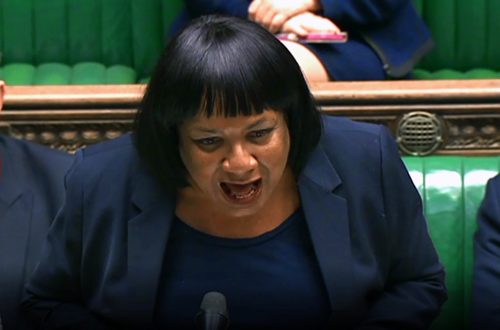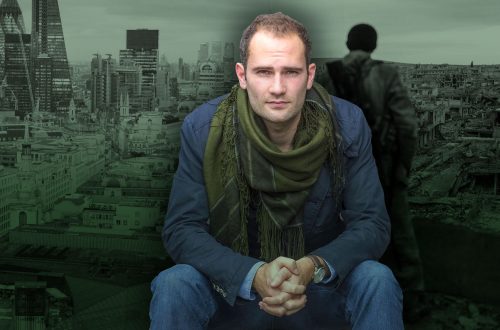This is a meme you should expect to hear with increasing frequency:
The Muslim Brotherhood represents the West’s best hope in beating Al Qaeda. Therefore, Western governments should partner with Muslim Brotherhood organisations, domestically, and should help to establish them in leadership positions within the Muslim community.
This is the line which groups like the Conflicts Forum – run by the former spy, Alisdair Crooke – has been pushing for some time. During Ken Livingstone’s time as Mayor of London, it was the bedrock of the policy for engaging with London’s Muslims. Under Bob Lambert of the Metropolitan Police’s Muslim Contact Unit, it was the cornerstone of our anti-terrorist strategy. It is, in effect, a softer version of the ‘Covenant of Security’ arrangement, under which jihadists were allowed to go about their business in London, as long as they didn’t undertake terrorist actions against targets in the United Kingdom.
Likewise, the Muslim Brotherhood (and Jamaat-e-Islami) connected groups are absolutely desperate to get back into bed with the Government. They know that, if they’re institutionalised, they have access to grants and influence and will be able to present themselves generally as the voice of British Muslims. So they’ve been very happy to play along too.
Crooke and Lambert have been active in peddling this message. Mark Lynch is also a fan of this thesis, albeit a slightly less bumptious one:
[T]he Muslim Brotherhood can serve as an important “firewall” against al-Qaeda style radicalization in Arab countries (while simultaneously taking seriously the concerns that it might act as a “transmission belt” towards radicalization under certain conditions).
However, Lynch’s focus is on the Muslim Brotherhood in Arab countries. By contrast, Lambert’s is on the role that the Muslim Brotherhood can play in British domestic politics.
Here is a good example of the “Institutionalise the Muslim Brotherhood” argument in The New Republic:
In 2003, British police shut [Finsbury Park] mosque, but Abu Hamza’s followers continued to have a strong presence in the area. In February 2005, police helped broker a deal for the mosque to re-open under the leadership of the local chapter of the Muslim Association of Britain (MAB), a Muslim Brotherhood group. No sooner had the moderates gained control of the Finsbury Park mosque than they were confronted by Abu Hamza’s angry followers, led by the pugnacious Atilla Ahmet, who calls himself “the number-one Al Qaeda in Europe” and who, in October, pled guilty to providing British Muslims with terrorist training. “They brought sticks and knives with them,” recalls Kamal El Helbawy, spokesman for the new trustees at the mosque.
Undeterred, a few days later Helbawy gave the first Friday sermon, explaining that this was a new start for the mosque and stressing how important it was for Muslims to live in harmony with their neighbors. Detective Inspector Lambert, the Metropolitan police officer who helped broker the takeover, says that, because of its social welfare work and its track record supporting the Palestinian cause, the MAB has “big street cred in the area and [has] made an impact on Abu Hamza’s young followers.”
Detective Inspector Lambert told us preachers like Anas and Al Oudah “can’t be discounted. … When you have Muslim leaders who are attacked both by Al Qaeda supporters and by commentators who oppose engagement [with Islamists], then they are in a useful position.”
I can see why the strategy is attractive to some people. If you are a bigot who thinks of Muslims as irrational nutters who wander around ululating and demanding blood, then it must come as a pleasant surprise to find the nicely dressed, well educated and neatly groomed Muslim Brotherhood lot are prepared to talk cordially to you. If you are an aging former revolutionary socialist, perhaps you find that the Muslim Brotherhood activist’s fervour and determination to defeat the Great Satan reminds you of the passion you once had for your own politics. If you are an ex-spook, the idea of building strategic alliances with one colonial group to defeat another will also appeal to the part of you which enjoys playing the Great Game. Likewise, lazy bureaucrats and policy makers find organised groups – and the Muslim Brotherhood are well organised – to be attractive partners, because engaging with them involves minimal effort.
I think those justifications for institutionalising the Muslim Brotherhood are very poor.
There’s another argument, though, which is by its nature, more difficult to counter. It is that there is no alternative to putting the Muslim Brotherhood in control of British Islam, because the State has no other vehicle through which it can engage with Muslims in this country.
My view is that domestic jihadism will burn itself out, just as the far Left terrorism of the 1970s did. Until it does, it should be combatted by means of the criminal law, and not by cutting a deal with the jihadists’ close ideological cousins in the Muslim Brotherhood. I think that partnering with the Muslim Brotherhood and imposing its leadership on British Muslims is a disasterous mistake. I think the correct strategy is to treat British Muslims as diverse, not to try to herd people into confessional-political organisations, and not to seek to ‘engage’ with them through supposedly ‘representative bodies’ at all. Nobody would have suggested partnering with the British National Party to defeat David Copeland, after all.
In practical terms, that means that if the Muslim Brotherhood wants to try to take control of a mosque, the State should not be helping them to do it.
The reasons that we should not be pursuing a policy of partnering with extreme Islamist groups are as follows.
First Islamist groups are not the natural leaders of British Muslims. British Muslims are mostly South Asian, not Middle Eastern. The Muslim Brotherhood is an Arab (or rather, Egyptian) led group. Islamist politics are not dominant in South Asia, where Jamaat tends to do about as well as the British National Party does in the UK. Many British Muslims are actively hostile to Islamist politics; particularly those from Bangladesh where Jamaat committed war crimes against civilians during their War of Liberation. Bob Lambert thinks that the Muslim Brotherhood is popular among the Algerians who live in Finsbury Park, but they represent only a tiny and unrepresentative fraction of Britain’s Muslim population. Indeed, an awful lot of Algerians in this country are refugees, who escaped Islamist violence in their home country: the man who blew the whistle on Abu Hamza was one such man. They are our allies: not the Islamists.
Secondly, the Muslim Brotherhood is a clerical fascist organisation. They stand for the fusing of church and state, and the dominance of non-democratic religious law over man made law, the rejection of fundamental human rights standards, the entrenching of gender and religious inequality, the lack of freedom to change or abandon religious beliefs, except in one direction, and the death penalty for those who do. They are not a non-violent organisation. In Egypt, they do not engage in terrorism, but that is a tactical decision only. However, Hamas – which is the Muslim Brotherhood – directs terrorist attacks against civilians, without shame: a policy which is sanctioned religiously by the Muslim Brotherhood’s religious leader, Yusuf Al Qaradawi. There are some who argue that the Muslim Brotherhood is a curate’s egg, and that some parts of it are not as bad as others. That may be so, but the latest news is that it is the “conservatives” who are in the ascendancy, not the “reformists”. The long and the short of is is this. No democratic State should partner such an organisation, or seek to delivery British Muslims into their clutches: particularly if they hope to avoid the growth of terrorism in the United Kingdom.
Finally, the Muslim Brotherhood is a sectarian organisation, which works to isolate, not integrate, British Muslims. They’re very good at doing the “we all need to be good citizens” speech, when they need to. However, their raison d’etre is to build Ummah-consciousness, an “Us versus Them” worldview: in order to marshall of Muslims into a single social and political bloc. By contrast, British Muslims are largely non-sectarian, and are integrating into the mainstream of British society in much the same way that any other immigrant group does. It is outrageous to deliver these people into the hands of the Islamists.
Not only is the strategy of partnering with Islamists likely to be ineffective: it is also dangerous to Britain’s social cohesion, and unfair to ordinary British Muslims.


